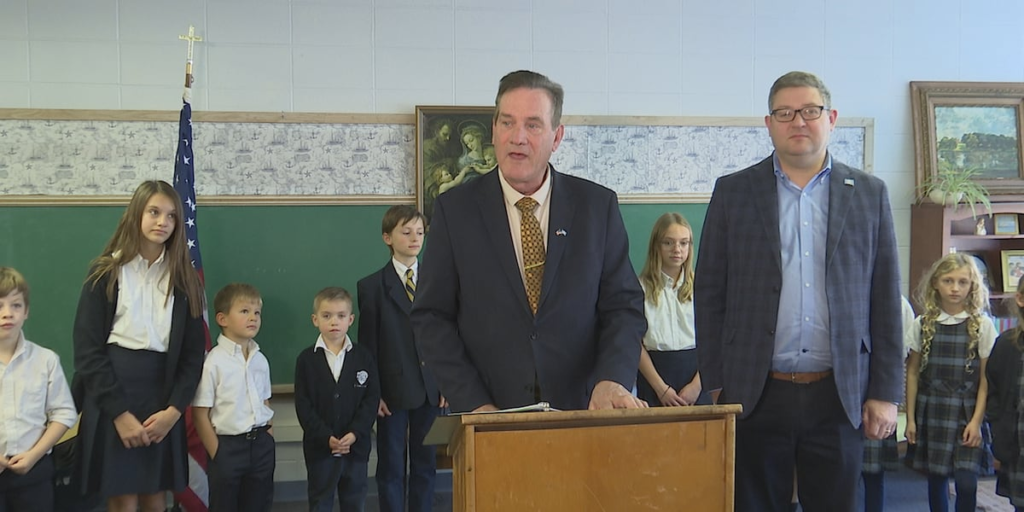SIOUX FALLS, S.D. (Dakota News Now) – South Dakota Governor Larry Rhoden says the state will opt in to the federal education tax credit program created by President Donald Trump’s “One Big Beautiful Bill.”
Rhoden made the announcement on Friday at Saint Joseph Academy in Sioux Falls, touting the move as a way to expand school choice options for families across the state.
“Regardless of where they receive their education, my goal as governor is to support innovation, not to stand in the way. So, we will continue to champion policies to expand freedom and learning for our students,” Rhoden said.
While public school students could receive some of these benefits, this program is designed to help students attending private, classical, micro-schools, or homeschool students. People can donate to scholarship-granting organizations that must be approved by the governor’s office.
The bill includes a permanent, uncapped dollar-for-dollar tax credit program for individuals who donate up to $1,700 annually to support private school tuition, and select expenses for public school students. To be eligible for these tax credits, individuals must donate to scholarship-granting organizations.
“This money will fund scholarships for families to use on a variety of educational purposes. They can use it to attend classical schools like Saint Joseph or a micro-school like Onward Learning [in Martin]. It will help support families as they discover what opportunities work best for their kids,” Rhoden said.
Education Secretary Joseph Graves said the state needs a “more competitive system” to help improve educational outcomes, and this will spur growth in alternative education.
“If we can have a more robust, competitive system in education, that always improves things. So, in any field of endeavor, where there’s competition, the quality improves,” Graves said.
Graves also said in rural parts of the state, there aren’t many choices for families outside of public schools. So these scholarships will help offset the cost of moving out of the district.
“We have areas in this state that I refer to as educational deserts. Places where parents and students do not have access to a good, quality school that’s producing much in terms of results. We need to promote that, and we need to prove that kind of innovation. This is the kind of thing that will do that,” Graves said.
Rhoden said the program still needs some guidance from the federal government, but he doesn’t believe it will need any additional legislation from the state legislature.
If everything goes to plan, this program will start in January of 2027
Copyright 2025 Dakota News Now. All rights reserved.

